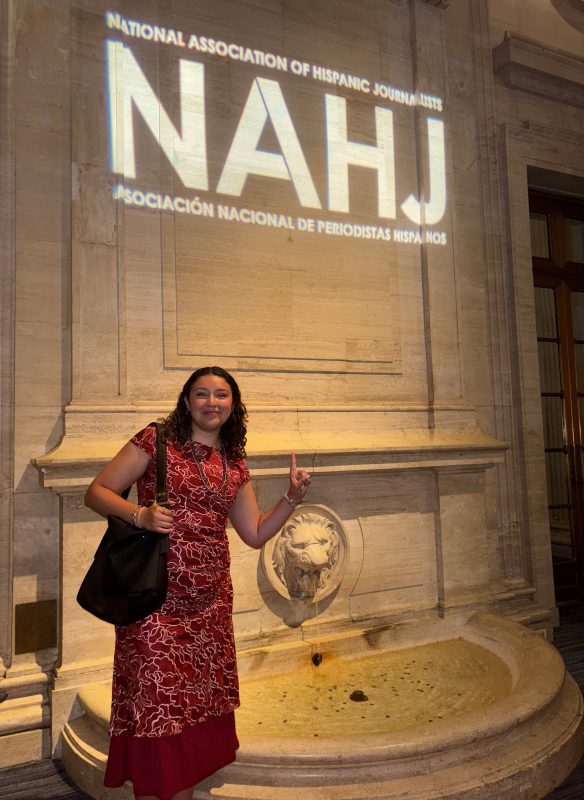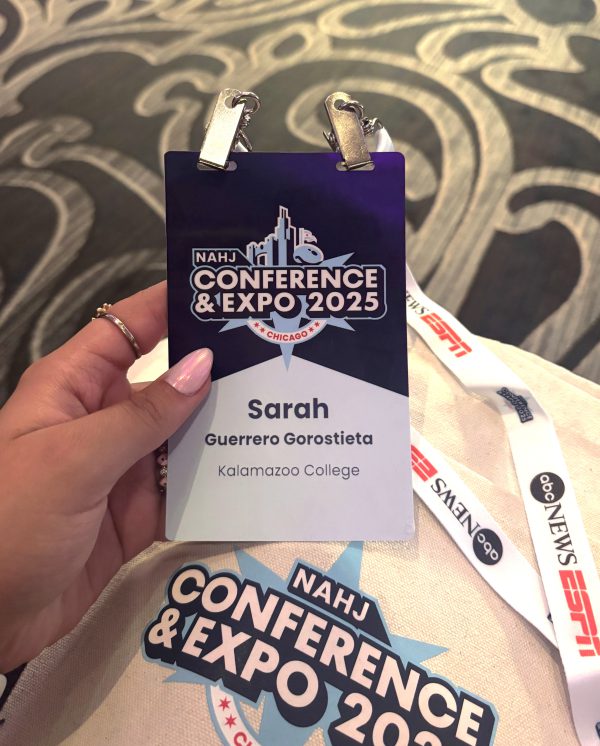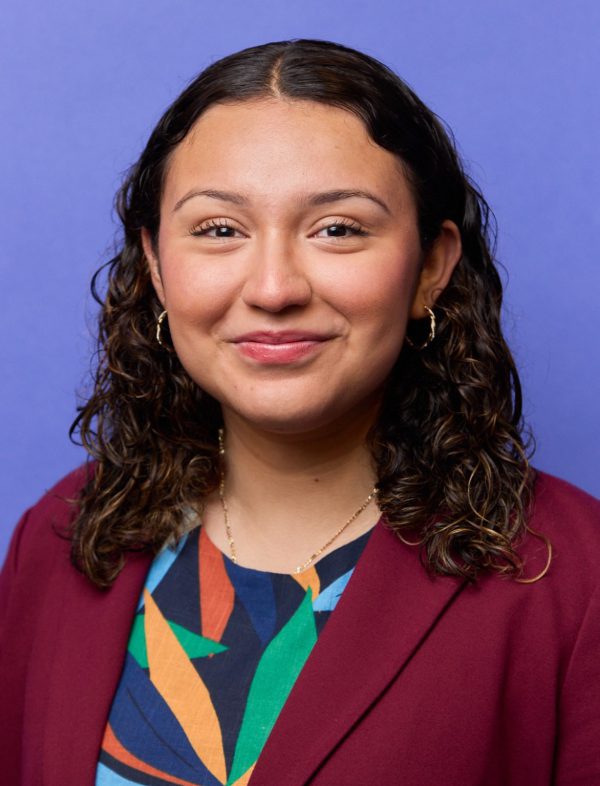For Kalamazoo College student Sarah Guerrero Gorostieta ’28, a passion for writing has opened doors all the way to the New York Times.
Guerrero learned in August that she’s been selected for the New York Times Corps, a program for college students who could benefit from mentorship and career guidance. The Corps connects participants with veteran journalists and provides professional training before the students visit the Times newsroom. Although she won’t be writing for the Times, the program represents an extraordinary opportunity.
“I’m grateful for this because practicing skills in journalism will help me learn to be curious and how to ask questions,” she said.
Guerrero attended a student conference through the National Association of Hispanic Journalists in April, later attending the association’s full conference in July thanks to the Arcus Center for Social Justice Leadership Fund at K. When the association posted about the Times’ mentorship program on LinkedIn, she felt earning a spot might be difficult with her limited experience—she only had two writing classes and no previous freelance work. Yet the post suggested the Times was looking for students just like her.
With that thought and some encouragement from Professor of English Marin Heinritz, she decided to apply. Today, Guerrero is paired with Motoko Rich, the Times’ Rome bureau chief. She will receive guidance from Times journalists and attend training sessions with her cohort for the next three years.
Guerrero—who enjoys studying English, political science and Spanish—began her journalism journey in high school outside Chicago. She pursued independent writing and joined her school newspaper during the pandemic to stay connected with classmates. Although K does not offer a journalism major, she has discovered that courses and opportunities at K are helping her prepare to become an independent journalist.
“Dr. Heinritz was a philosophy major, and she told me that you don’t need to major in English or journalism to become a journalism professional,” Guerrero said. “You just have to be curious. You just have to push yourself to learn. Motoko Rich, my mentor, told me that it’s important to learn a little bit about a lot of things. That’s why I think K, with our open curriculum, is so good for me. I can take a little bit of everything while also learning how to be good at one niche thing.”
Taking the introduction to journalism course with Heinritz further piqued her interest in the profession. One assignment for the class pushed her to interview strangers around campus and she learned to write stories on tight deadlines.
“It was nerve-wracking, but it also made me excited,” she said. “It was a way to orient myself as a first-year student and Dr. Heinritz encouraged me to keep going, even when it was difficult.”
Since then, Guerrero has leaned into every opportunity to develop her craft as she writes for K’s student newspaper, the Index, contributing campus stories, and freelances for NowKalamazoo, a nonprofit newsroom known for in-depth local reporting. Her first published story profiled a Nigerian food truck in downtown Kalamazoo.
“It was intimidating, writing for a broader audience I didn’t know,” she said. “But I realized I don’t have to wait until after graduation to do the real work. I can do it now.”
Those experiences complement her national opportunities, giving her both mentorship at the highest level and practical reporting experience in her community. Guerrero is especially drawn to solutions journalism, which highlights how communities address challenges. She also feels a strong responsibility to represent voices at K that might otherwise go unheard.
“We have a lot of students of color here, and their stories need to be shared,” she said. “I want to help build a bigger, more diverse staff at the Index.”
Guerrero’s long-term vision is to mentor younger student writers, expand the paper’s reach and ensure that it reflects the full K community.
Alumni of the Times Corps often go on to fellowships, freelance opportunities and newsroom careers. Guerrero hopes to one day pitch stories to the Times, perhaps even for its Modern Love section, which she has followed since high school. For now, she balances classes, reporting and her growing network of mentors. She admits she still gets nervous before interviews, but she sees that as a good thing.
“Journalists should be a little nervous,” she said. “It means the questions we’re asking matter.”
As she looks ahead to study abroad, internships and more bylines, Guerrero remains motivated by the same curiosity that brought her to the field in the first place.
“The future of journalism belongs to people who ask good questions and believe in the freedom of the press,” she said. “That’s the kind of journalist I want to be.”



